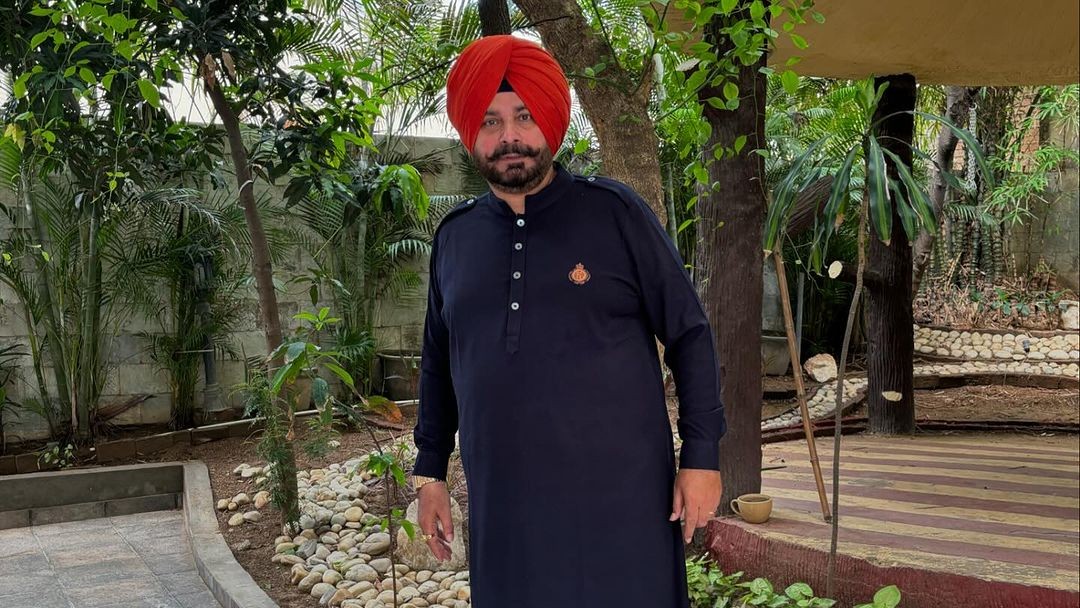Former cricketer Navjot Singh Sidhu recently held a press conference outside his home in Amritsar, where he revealed that his wife, Navjot Kaur Sidhu, is now clinically cancer-free. He spoke about her inspiring journey in overcoming stage 4 cancer with metastasis. During the conference, Navjot shared the treatments she received at government hospitals, along with the ayurvedic diet she followed. He convincingly urged the public to believe in the possibility of curing cancer through both medical treatment and an ayurvedic diet.
His statements have sparked curiosity among health enthusiasts about the potential of dietary choices and lifestyle in cancer recovery. To clarify the claims surrounding the strict diet, the Free Press Journal consulted several health experts and cancer specialists, and here’s what they have to say:
‘Dietary changes alone cannot cure cancer’
Dr. Rekha Arya, MBBS, MD (radiation oncologist), senior consultant—Yashoda Cancer Hospital, Sanjay Nagar, Ghaziabad, said, “Dietary changes can play a supportive role in cancer treatment by improving outcomes, reducing side effects, and enhancing overall health. However, they cannot cure cancer on their own.”

Canva
She further explained, “Proper treatment, such as surgery, chemotherapy, or radiation therapy, is essential. Patients should not delay these in favour of unproven, diet-based cures, as they can result in poorer outcomes and reduced survival rates. A nutrient-dense diet, combined with regular exercise, stress management, adequate hydration, and sufficient sleep, can complement traditional cancer treatments by supporting immune function and overall well-being. Incorporating foods rich in fruits, vegetables, and whole grains provides essential nutrients and antioxidants while minimising processed and sugary foods promotes better health and recovery.”
‘No large-scale study suggests herbal medicine or diet can control metastatic cancer’
Dr Sushama Sumeet, BAMS, MD, PhD, an Ayurveda physician and senior research fellow at ICTRC Pune Integrated Cancer Treatment & Research Centre, stated, “There have been reports of dietary changes and medicinal plants being used to alleviate the side effects of cancer treatment, ultimately contributing to the health and well-being of the patients. It could form part of the supportive treatment in managing stage IV cancer. However, there is no large-scale study that suggests herbal medicine or diet alone can control metastatic cancer. Any findings or claims in this area are typically based on subjective results, such as those from individual experiences.”
“The specific dietary recommendations given to one patient may not be the same for another; they can vary based on the cancer site, progression stage, patient’s history, presence of other comorbidities and several other factors. Treating chronic diseases like cancer with a single treatment modality is often challenging. Most of the time, an integrated approach combining conventional treatments with the right nutritional interventions and complementary Ayurveda medicines proves to be more effective,” the expert added.
‘Low-fat diet resulted in decreased risk of death from breast cancer’
Dr Vanita Rahman, an internal medicine physician, certified nutritionist, and fitness expert with the Physicians Committee for Responsible Medicine (PCRM), shared, “Only 5 to 10 percent of breast cancers are genetic, which means that much of the risk is related to lifestyle factors. It is important to know that low-fat, plant-based foods and exercise are associated with a decreased risk of breast cancer. Research has shown that soya-based foods (tofu, soymilk, soya chunks, soybeans, and edamame) are associated with a 41 percent reduction in breast cancer incidence and a 26 percent reduction in the risk of breast cancer recurrence.”
She further added, “In the Women’s Health Initiative, a low-fat diet rich in fruits, vegetables, and grains resulted in decreased risk of death from breast cancer. On the other hand, red and processed meats, cigarette smoking, alcohol consumption, and hormone replacement therapy are associated with an increased risk of breast cancer. If you have been diagnosed with breast cancer, it is important to work with your healthcare team.”
Tata Memorial Hospital’s doctors statement
Directing to Sidhu’s announcement, doctors from Tata Memorial Hospital also issued a joint statement and advised people to not blindly follow unproven methods to treat cancer and delay their treatments.
The statement read, “A video of a former cricketer describing his wife’s treatment for her breast cancer has been circulating widely on social media. Parts of the video imply that “starving the cancer by not eating dairy products and sugar,” consuming haldi (turmeric) and neem helped cure her “incurable” cancer.”
“These statements have no high-quality evidence to support them. While research is ongoing for some of these products, there is no clinical data currently to recommend their use as anti-cancer agents. We urge the public to not delay their treatment by following unproven remedies but rather to consult a doctor, preferably a cancer specialist, if they have any symptoms of cancer. Cancer is curable if detected early and proven treatments for cancer include surgery, radiation therapy and chemotherapy,” they added.
